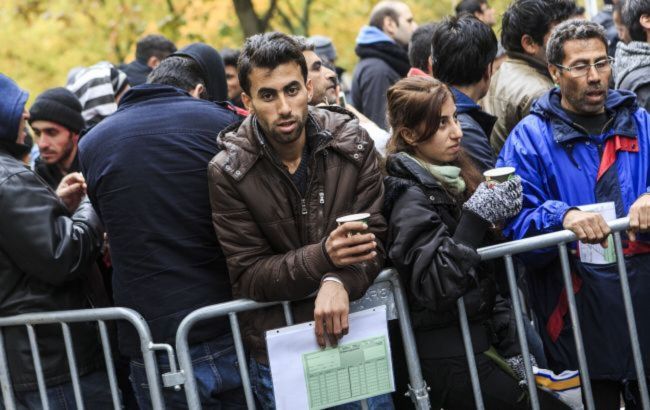Solidarity Fund - EU prepares new mechanism to regulate migration pressure on member states
 Photo: migrants in Berlin (Getty Images)
Photo: migrants in Berlin (Getty Images)
The European Commission has designated Spain, Italy, Greece, and Cyprus as countries under significant migration pressure, according to Euronews.
According to the European Commission’s Asylum and Migration Report, Spain, Italy, Greece, and Cyprus experienced a "disproportionate level" of migrant arrivals last year, including sea rescues.
As a result, these countries will receive priority access to EU resources starting in June 2026, when the Pact on Migration and Asylum enters into force.
EU Solidarity Fund
Alongside this assessment, the European Commission has proposed an Annual Solidarity Fund, a mechanism to determine the total number of asylum seekers to be relocated and the amount each EU member state must contribute, either through resettlement or financial compensation.
The proposal, which is not public, will be discussed by EU member states before the end of the year. Each country, except those under migration pressure, will be required to contribute proportionally to its population and GDP, choosing one of three options to meet its solidarity obligations:
-
Relocate a set number of asylum seekers;
-
Pay €20,000 per person not relocated;
-
Fund operational support in member states under migration pressure.
The report also identifies 12 countries at risk of migration pressure - Belgium, Bulgaria, Germany, Estonia, Ireland, France, Croatia, Latvia, Lithuania, the Netherlands, Poland, and Finland. These countries must still show solidarity, but may have their status reassessed next year to prevent disproportionate obligations.
A third group, including Bulgaria, the Czech Republic, Estonia, Croatia, Austria, and Poland, is classified as facing a significant migration situation. They must also express solidarity but can request exemptions from quotas, subject to Commission approval and endorsement by other member states.
Countries rejecting migrant relocation
Hungarian Prime Minister Viktor Orbán, Polish Prime Minister Donald Tusk, and Slovak Prime Minister Robert Fico have already stated they will not implement the EU’s rules, refusing both financial contributions and the acceptance of migrants.
An EU official told Euronews that refusal to contribute to the solidarity mechanism would be treated as a violation of EU obligations. The first evaluation of the new migration rules is scheduled for July next year.
Stricter refugee policies across Europe
Earlier, the United Kingdom was preparing radical changes to its asylum system modeled after Denmark, restricting family reunification and tightening residency rules.
Among the proposed measures are temporary residence limits and stricter requirements for reunification: both partners must be over 24, refrain from state benefits for three years, provide financial guarantees, and pass a language test.

